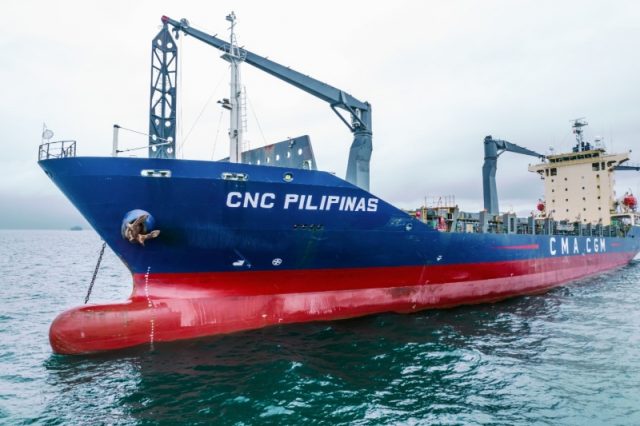An intra-Asia short sea specialist shipping carrier launched its first foreign-owned domestic service in the country in late September to develop local trades and offer employment to the Filipinos.
CNC’s Luzon Visayas Mindanao Express (LVMX) would support the establishment of new maritime routes and connect major sea ports in the country.
It would provide a weekly service rotating between Manila, Cagayan de Oro and Cebu.
“This fixed [weekly service] will not only connect a few major ports in the Philippines but also offer reliability and a service quality for domestic shipping,” CNC chief executive officer (CEO) Steven Zhu said.
CNC Pilipinas, a 1, 037 twenty-foot equivalent unit (TEU) vessel, would be used in the service.
It could carry approximately 600 TU per week, depending on the loading and discharges of cargo.
It was the first vessel in the company’s fleet to be stationed domestically, according to Zhu.
The containers used to transport goods locally and internationally improved the efficiency of cargo handling as they removed the on-board transportation costs.
The CNC CEO said that it was “beneficial for essential routes such as food and rice, where cost effectiveness is high.”
Meanwhile, CMA CGM Asia-Pacific CEO Bo Wegener highlighted that the group aimed to enhance competitiveness access for Filipino consumers and partners in local and international trading.
The company also planned to expand their services by adding more vessels and ports.
CNC served as the inter-Asia services arm after it became a fully integrated subsidiary of CMA CGM, which serves more than 400 ports globally, in 2007.
The LVMX shipping service is registered under CMA CGM Philippines Shipping, the new legal and local entity of shipping line CNC.
The government expanded its regulations under the Public Service Act, which allowed 100% foreign ownership of public services.
Job creations
Meanwhile, Zhu said that the domestic service planned to hire 100% Filipino seafarers to work in CNC Pilipinas, offering them job opportunities and upskilling.
He added that the company would administer the international shipping training and safety benchmarks in the local industry to meet the global standards.
“This investment in the local workforce is so crucial for our success in the operation,” the CNC CEO highlighted.
According to him, the domestic service adhered to the government’s regulations on the employment of seafarers.
The CNC Pilipinas would be operated by approximately 20 Filipino seafarers every rotation.
Zhu highlighted that the working rotation of the crew members would allow them to spend more time with their families.
CNC, which was founded in 1971, connects 61 ports and offers 53 services in the Asian region.










